"Photographs: A Decade of Collecting" featuring masterpieces of early French photography and groundbreaking modern photographs created since 1960 – both the earliest and most recent chapters in the history of the 160-year-old medium – was on display June 5 – September 2, 2001 at The Metropolitan Museum of Art.
The French works included in the exhibition reveal the remarkable beauty and technical mastery that French photographers—many of them trained as painters— achieved a mere decade after the invention of the medium. Landscapes suffused with deep swathes of evocative shadow, psychologically revealing portraits, elegantly seductive studies of the nude, and Romantic representations of the nation's ancient and medieval past all demonstrate early photography's links to the painting and print traditions, as well as the ways in which the unique character and capacity of photography set its productions apart from all art that had come before. Together these works trace the rapid development of photography from the humble and intimate creations of gentlemen amateurs to ambitious artistic expressions of Second Empire grandeur.
Among the photographs included were (click on links for more information):
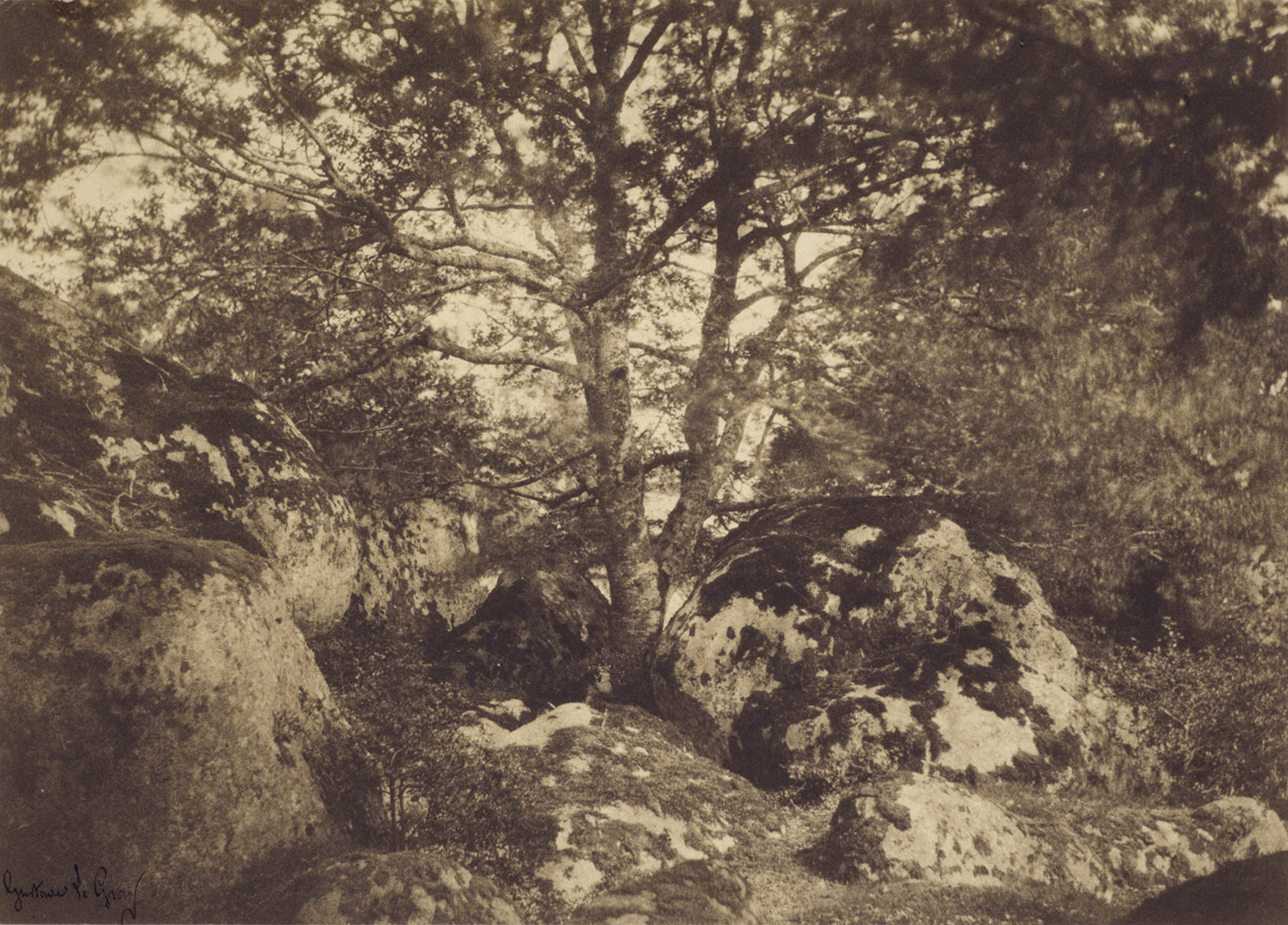
Gustave Le Gray's light-dappled Oak and Rocks, Forest of Fontainebleau (1849-56)

and serene twilight seascape Mediterranean with Mount Agde (1856-59);
Nadar's portraits of

the fiery left-wing politician Eugène Pelletan (1855-59)
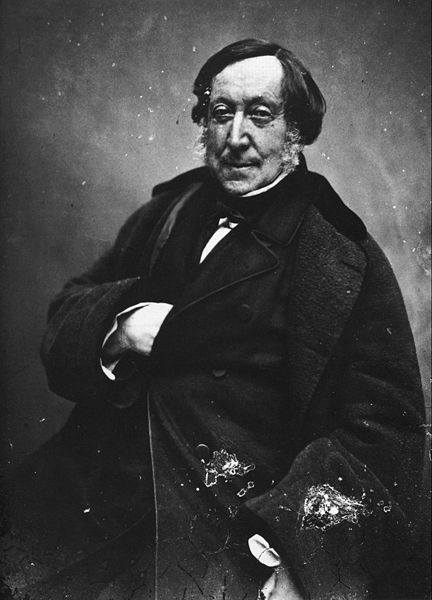
and the affable composer Gioacchino Rossini (1856);
landscapes by Edouard Baldus, including the softly atmospheric
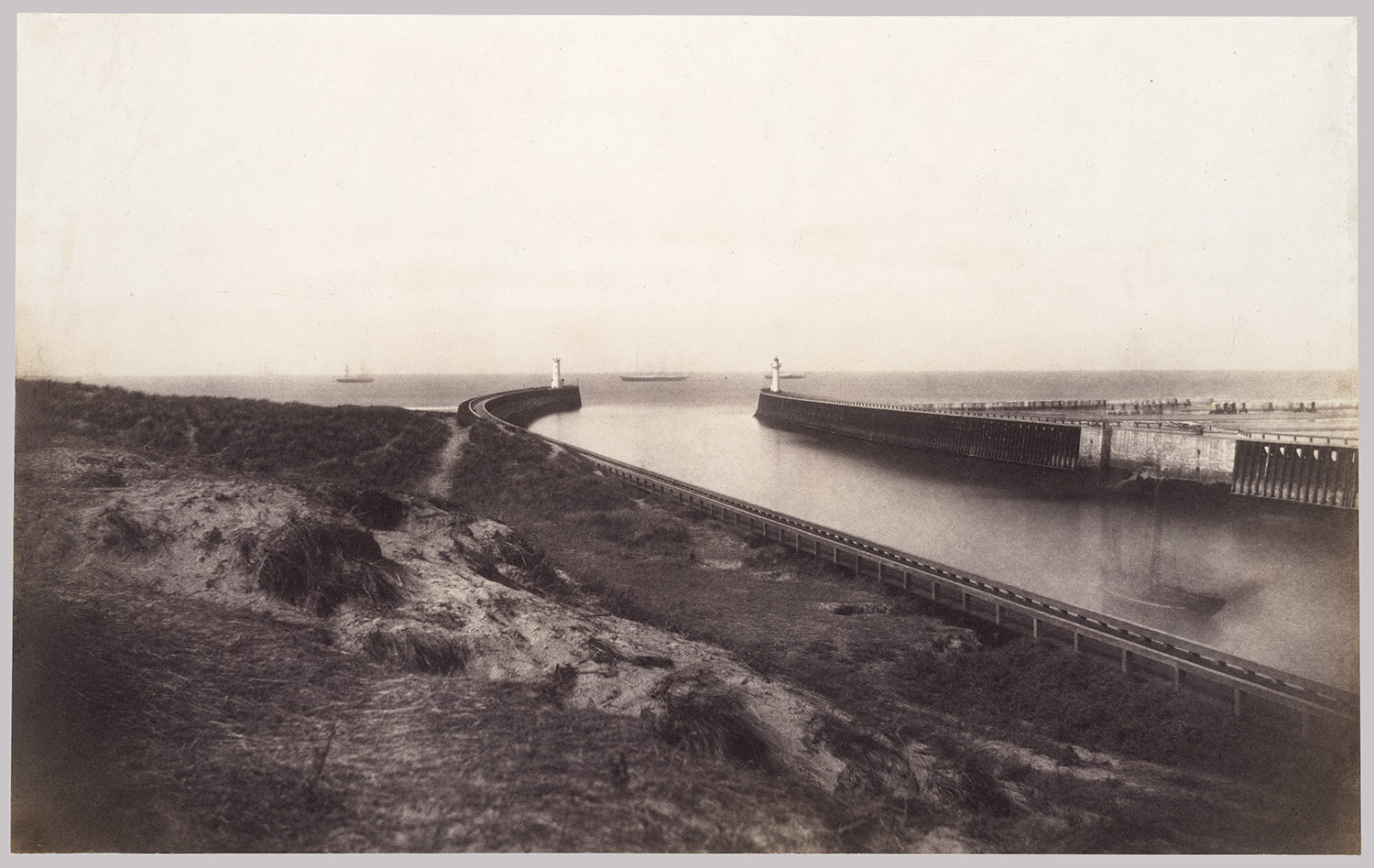
Entrance to the Port of Boulogne (1855);
views of medieval architecture in Normandy by Edmond Bacot, including
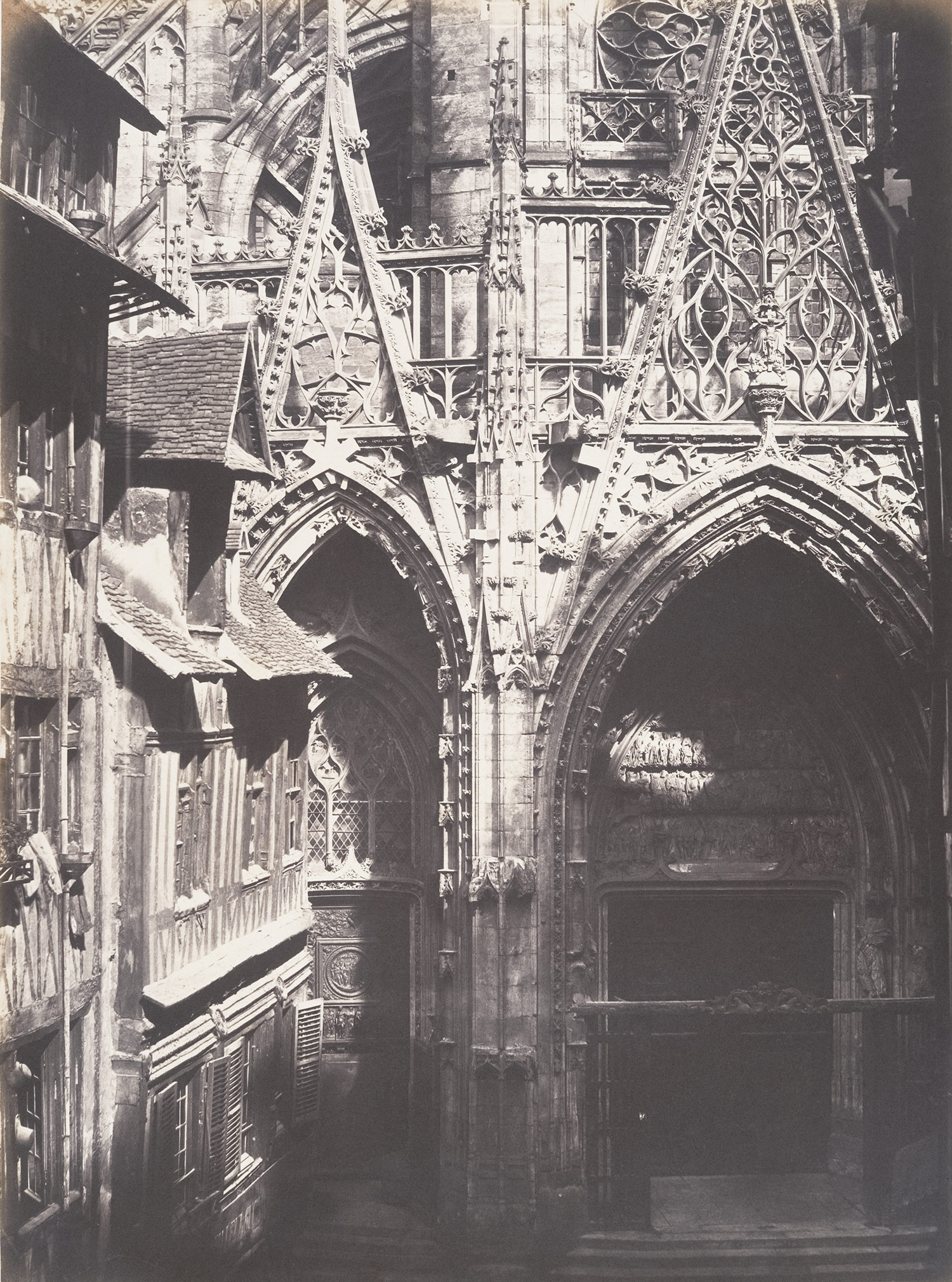
Saint Maclou, Rouen (1852-54);

and nude studies by Julien Vallou de Villeneuve from around 1853, which served as models for painter Gustave Courbet.
In the second gallery of the exhibition, "New Documentary" photographers such as Diane Arbus
and Garry Winogrand:
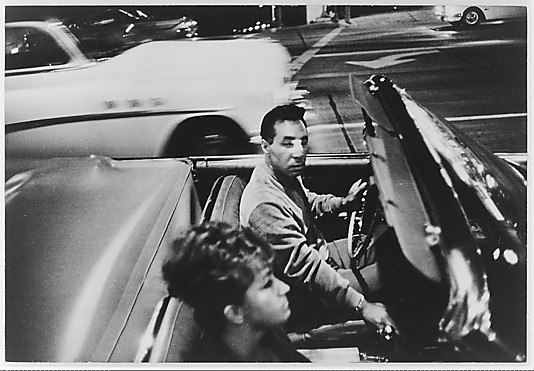
Los Angeles
included themselves in the stories they told—an elliptical mix of commentary and confessional characterized by a mordant wit and high irony. At the same time, young artists from outside the medium took up the camera to rewrite completely the rules of the game. Andy Warhol, Gerhard Richter, and others redefined the conditions of painting in an era of mechanical reproduction, Vito Acconci and the Vienna Actionists expanded traditional notions of sculpture to include the body, while Dan Graham, Gordon Matta-Clark, and Robert Smithson took it into the wider arena of architecture and social space. For the first time, these twin poles of documentary and avant-garde photographic practices during the 1960s were examined together in depth.
The final section of the exhibition presented a stunning array of diverse photographic works from the 1970s to 2000 that loosely follow a number of overarching themes, from the cool cultural critique of "Pictures" generation artists such as Cindy Sherman,
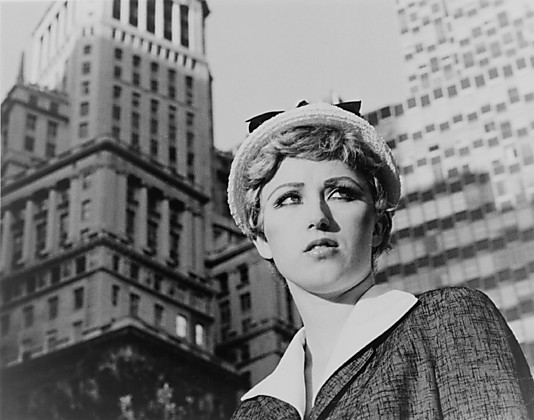
Still from an Untitled Film
Louise Lawler, and Richard Prince to the lyrical meditations of Robert Gober, Felix Gonzalez-Torres, and Nan Goldin – artists for whom the personal and the political are inextricably bound. Recent German photography were also featured prominently, including a hallucinatory, large-scale experimental work from 1975 by Sigmar Polke,
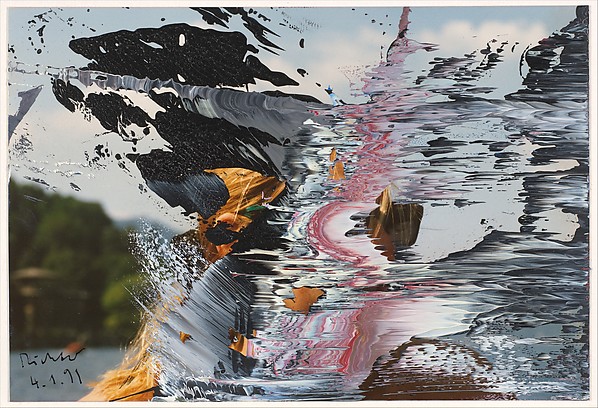
two exquisite painted photographs by Gerhard Richter,
and a suite of magisterial cityscapes from the late 1980s by Thomas Struth.
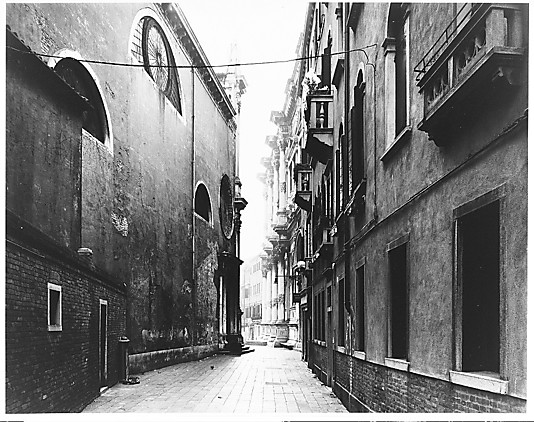
Calle Tintoretto, Venice
Also included were photographs by Sophie Calle, Patrick Faigenbaum, Adam Fuss, Carrie Mae Weems, and others.
This section was accompanied by a selection of large-scale contemporary photographs that were installed in the first floor area adjacent to the entrance of the Lila Acheson Wallace Wing. Entitled Places in the Mind: Modern Photographs from the Collection, the selection includes work by, among others, Jean-Marc Bustamante, Gabriel Orozco, Michal Rovner, and Wolfgang Tillmans.
Conservation of the works on view was directed by Nora Kennedy, Sherman Fairchild Conservator of Photographs. Exhibition design was by Michael Langley, Exhibition Designer, with graphics by Constance Norkin, Graphic Designer, and lighting by Zack Zanolli, Lighting Designer.